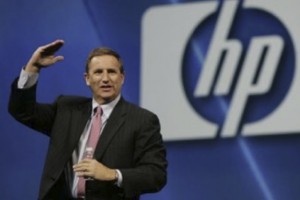Spying Scandal and Sexual Impropriety: When the Value of Integrity is Violated
When I talk to business leaders, I emphasize the importance of repercussions for violating stated values. Without fear of consequences, values become irrelevant for everyone in the organization.
To make this point clear, I share the following story.
Spying scandals and sexual impropriety are not just found in movies. They happen in business too, including well-established firms like HP that proudly tout the value of Uncompromising Integrity.
 Hewlett-Packard Company – or HP as it’s known today – is a great American success story. The company that Bill Hewlett and Dave Packard started in a garage in 1939 grew so large that by 2014 had $111 Billion in revenue with over 317,000 employees.
Hewlett-Packard Company – or HP as it’s known today – is a great American success story. The company that Bill Hewlett and Dave Packard started in a garage in 1939 grew so large that by 2014 had $111 Billion in revenue with over 317,000 employees.
As the company grew, Hewlett and Packard developed a unique management style that became known as “The HP Way”. The tenets of this ideology are reflected in the organization’s five Shared values:
- Trust and respect for individuals
- Achievement and contribution
- Results through teamwork
- Meaningful innovation
- Uncompromising integrity
HP defines this last value as follows:
Uncompromising Integrity: We are open, honest and direct in our dealings.
But since the late 1990s, this value has really been put to the test. One of the major problems was the fact that company information was being leaked from within the HP board.
This came to a head in the spring of 2005, at the same time Mark Hurd was hired as CEO.
The Spy Game
 At the same time that Hurd was hired, Patricia Dunn became non-executive Chairman of the board. One of her tasks was to investigate the source of the information leaks. When Hurd became CEO, Dunn spearheaded a more rigorous investigation, engaging an external investigation firm. But after months of work, no concrete evidence was found.
At the same time that Hurd was hired, Patricia Dunn became non-executive Chairman of the board. One of her tasks was to investigate the source of the information leaks. When Hurd became CEO, Dunn spearheaded a more rigorous investigation, engaging an external investigation firm. But after months of work, no concrete evidence was found.
Then in January 2006, the investigation took on new life when CNET published elements of HP’s long-term strategy that had been leaked to them. This time, the investigative team, comprised of a few HP employees and an external investigative company, crossed the line.
They violated the HP value of Uncompromising Integrity. They even broke the law.
The investigative team used a spying technique known as pretexting, where they impersonated HP board members in order to obtain telephone records. This breach of privacy impacted nine journalists, two HP employees, and seven HP board members.
Everything came to a head in September 2006 when Newsweek revealed HP’s spying activity. This led to Board member George Keyworth resigning, after being accused of leaking information. Then Patricia Dunn resigned as chairwoman, citing her presence would be a distraction on the board; followed by Ann Baskins, HP’s general counsel, just hours before she was to appear as a witness before the U.S. House Committee on Energy and Commerce, where she would ultimately invoke the Fifth Amendment and refused to answer questions.
When Mark Hurd was called to testify before the congressional committee on September 28, 2006, he stated:
“What began as a proper and serious inquiry into leaks to the press of company information became a rogue investigation that violated our own principles and values. There is no excuse for this aberration. It happened; it will never happen again…. The investigation team became so focused on finding the source of the leaks that they lost sight of the values of this company. They lost sight of the values that this company has always represented. This company was built on integrity. If Bill Hewlett and David Packard were still alive, they would be appalled. They would be embarrassed.”
Clearly HP’s value of Uncompromising Integrity had been violated at the highest levels.
Impact on HP
For many companies, such events spell disaster for the business. But that didn’t happen to HP. In fact, quite the opposite happened.
As CEO, and now also Chairman of the Board, Hurd implemented a number of significant top-level changes, including the adoption of a new code of conduct, plus specific oversight requirements as stipulated in an agreement with the California attorney general. He made it personally clear that adhering to HP’s core values was a top priority, specifically regarding integrity.
Surprisingly, HP’s performance took off. Under Hurd’s leadership, HP grew revenue and earnings per share (EPS) in four of his five years as CEO. Between 2005 and 2010, HP’s stock registered a 121% total return, and, thanks to Hurd’s ability to keep a tight reign on operating expenses, HP increased EPS from $.83 in 2005 to $3.69 in 2010.
It seemed as if Hurd was doing all the right things.
Personal Violation
 But in August 2010, Mark Hurd was forced to resign. Why? This time it was Hurd who personally violated HP’s value of Uncompromising Integrity.
But in August 2010, Mark Hurd was forced to resign. Why? This time it was Hurd who personally violated HP’s value of Uncompromising Integrity.
Hurd was being sued by an independent contractor – Jodie Fisher – for sexual harassment. In spite of the conflict of interest, Hurd and Fisher apparently had a close personal relationship that clearly went sour. She was hired to run events, they travelled together, and Hurd expensed some of her travel costs that were not related to HP business.
Following an internal investigation by HP, it was concluded that the company’s sexual-harassment policy was not violated. However, they did find that Hurd violated HP’s standards of business conduct, where they found: “numerous instances where [Jodie Fisher] received compensation and/or expense reimbursement where there was not a legitimate business purpose, as well as numerous instances where inaccurate expense reports were submitted by Mark or on his behalf that intended to or had the effect of concealing Mark’s personal relationship with the contractor.”
If this had been anyone else at the company caught doing such things, they would have been fired.
So Hurd resigned, publishing the following statement:
“I realized there were instances in which I did not live up to the standards and principles of trust, respect and integrity that I have espoused at HP and which have guided me throughout my career.”
I applaud Hurd’s decision to resign. It was the right thing to do.
If values are to have real meaning for a business, everyone in a company – including the CEO – must uphold them. When these values are violated, there needs to be consequences, even if that means leaving the company.
Do you think a leader should resign if they violate a stated core value?








